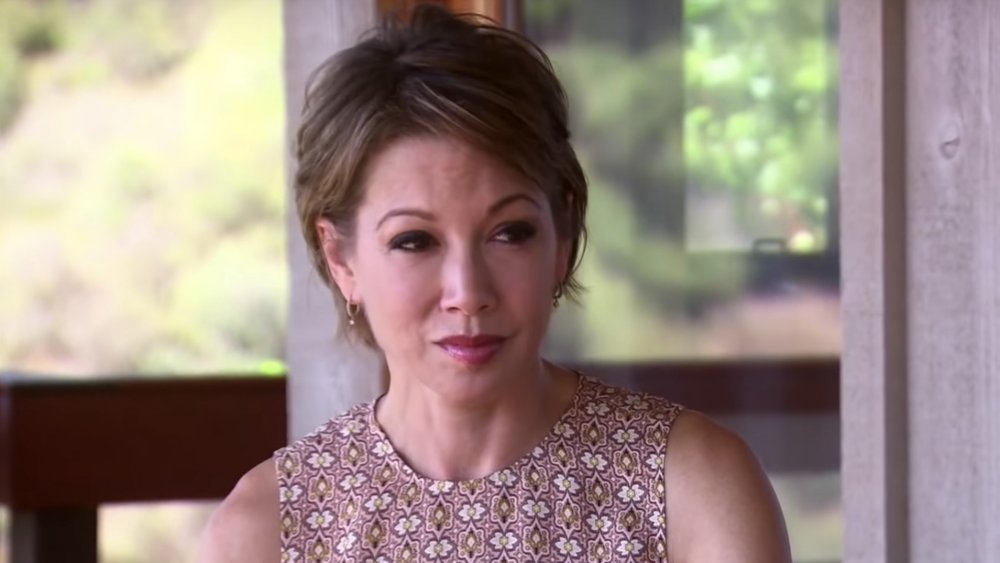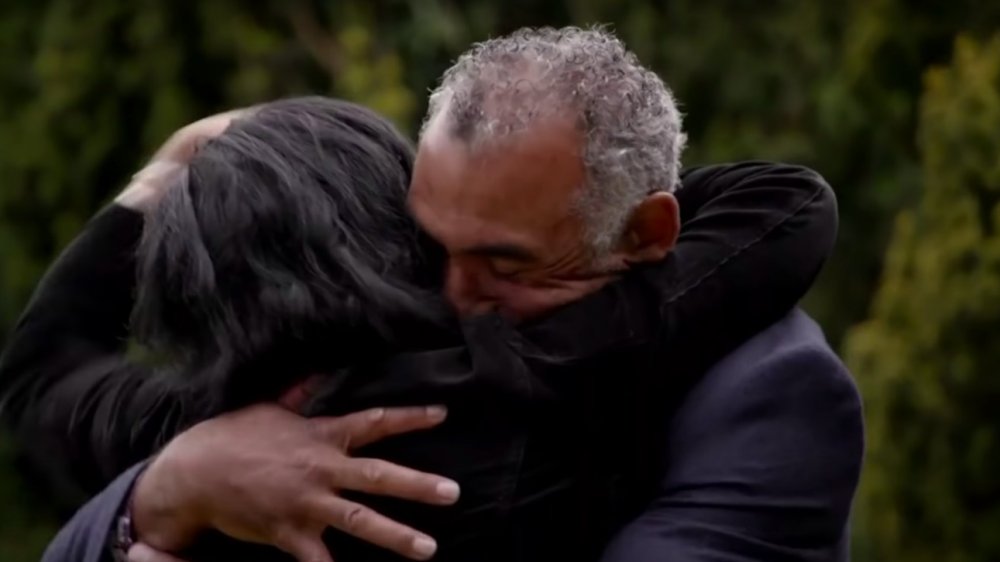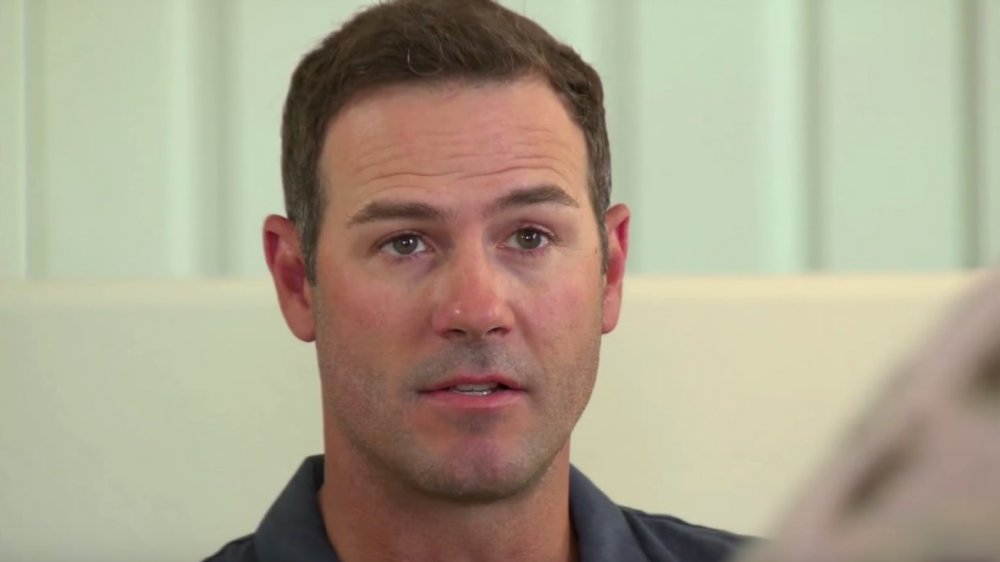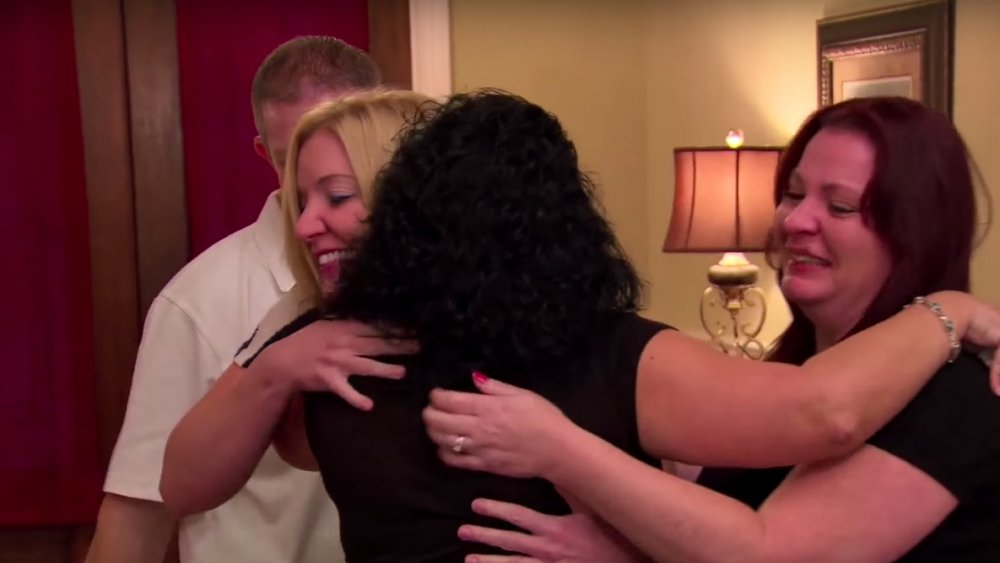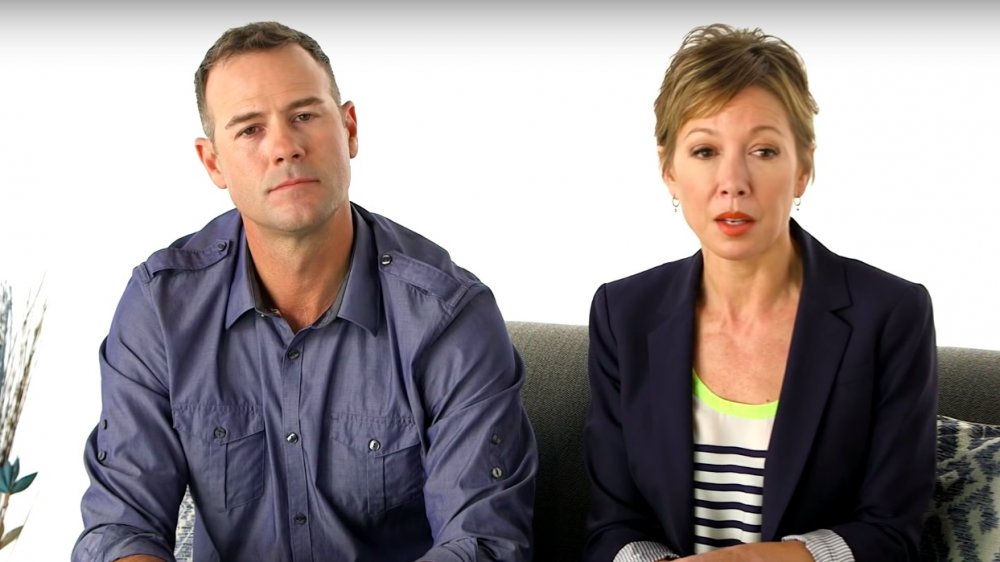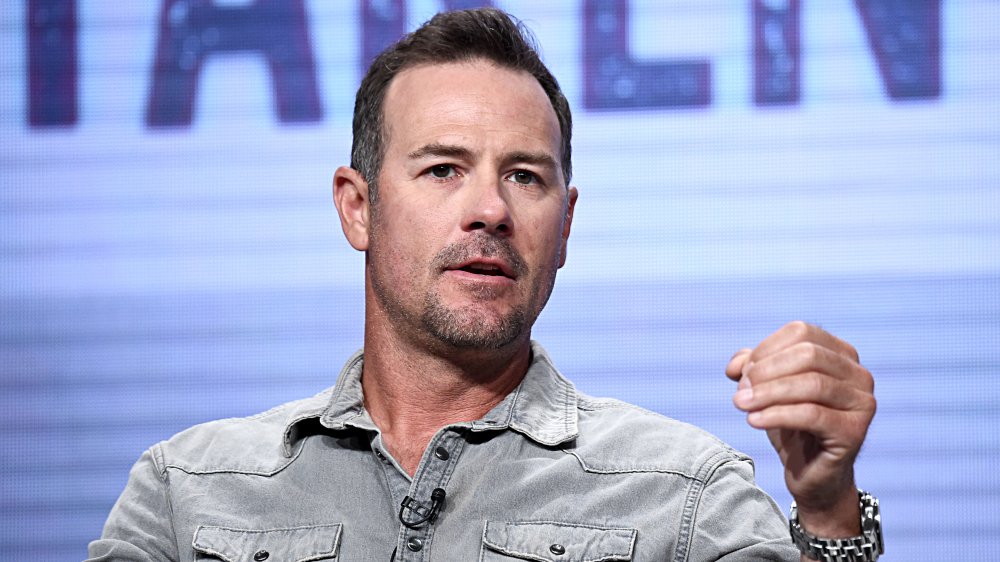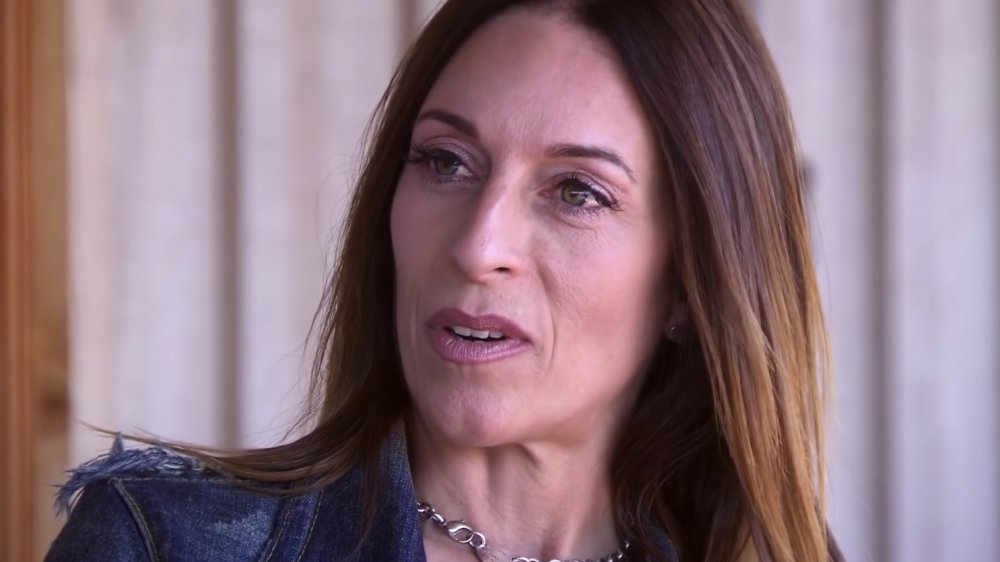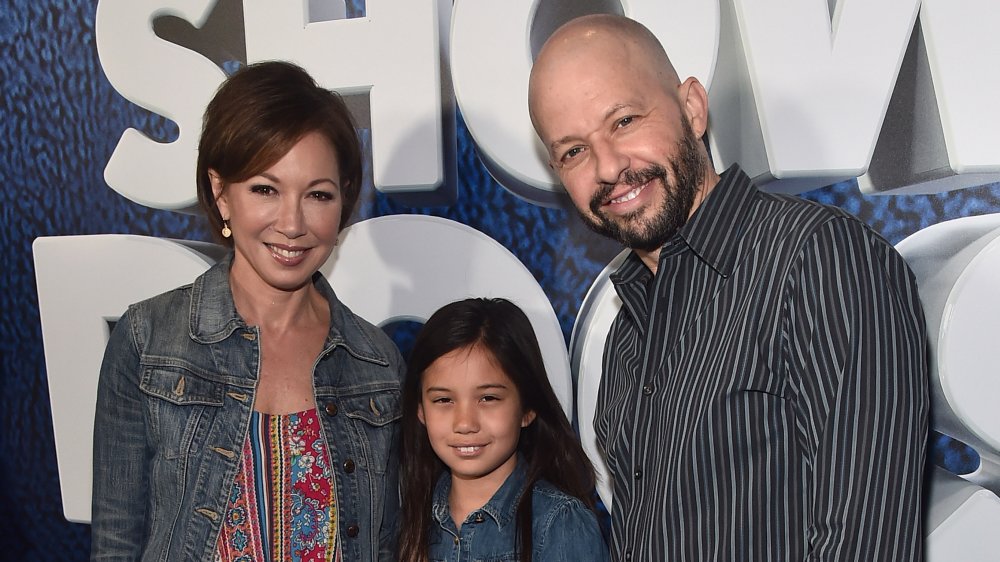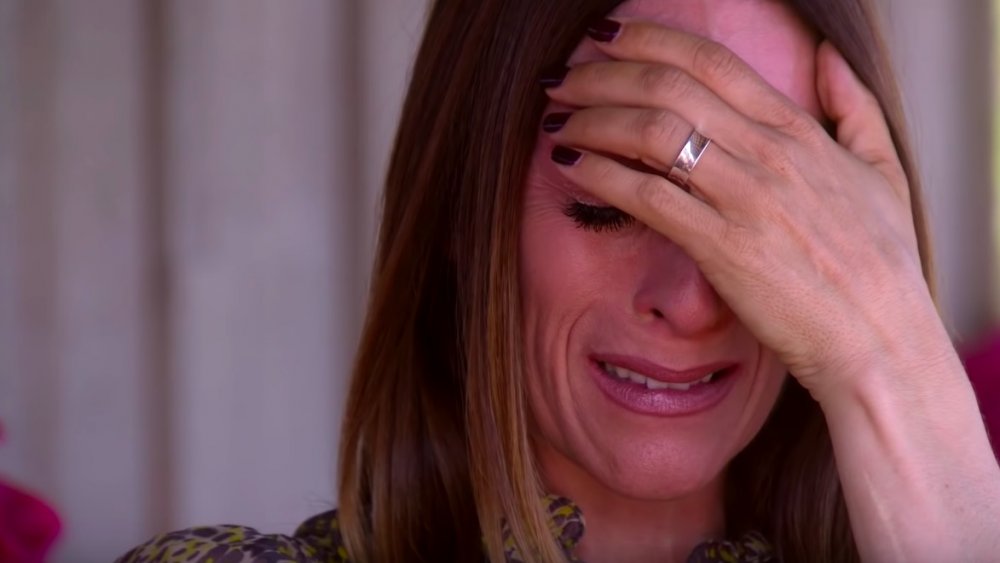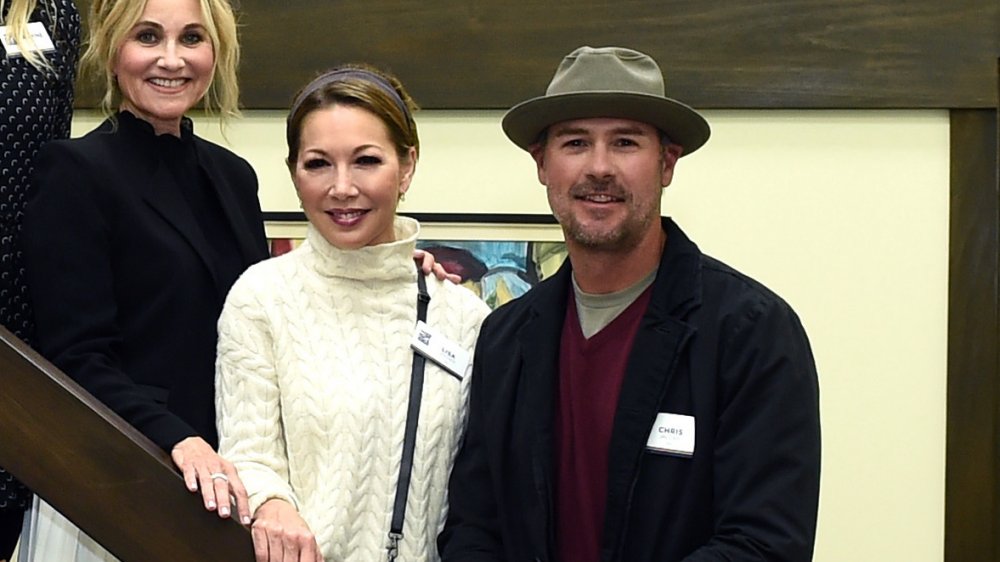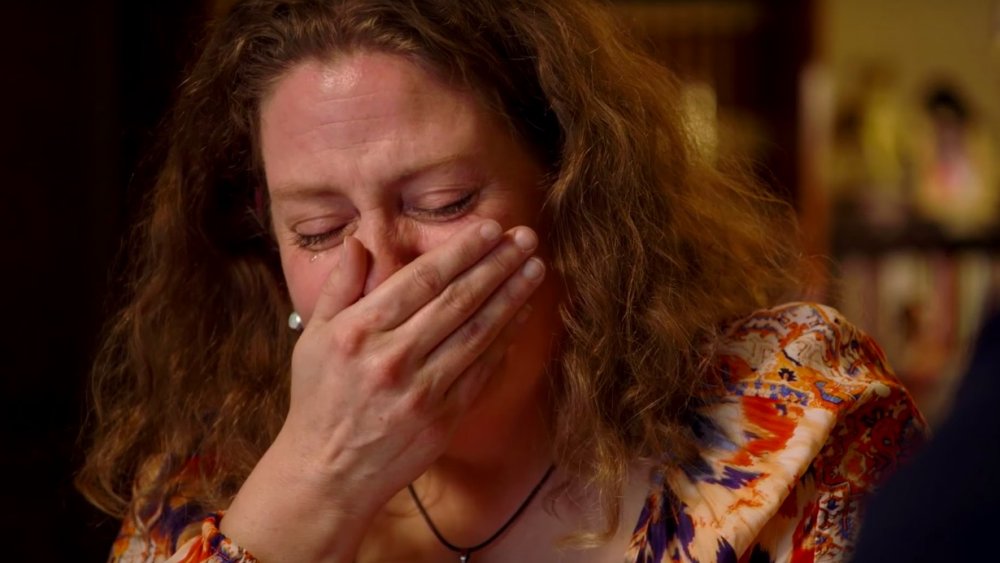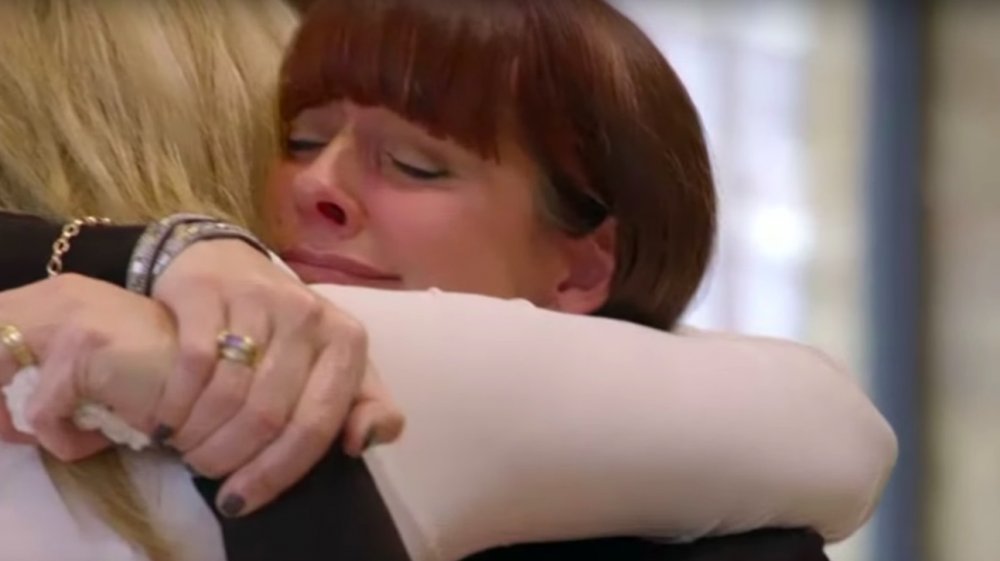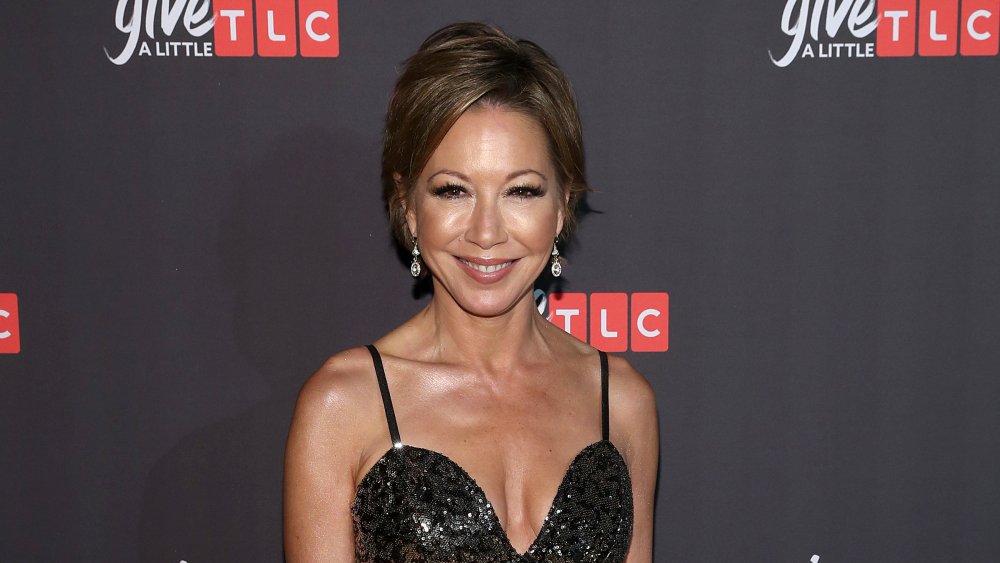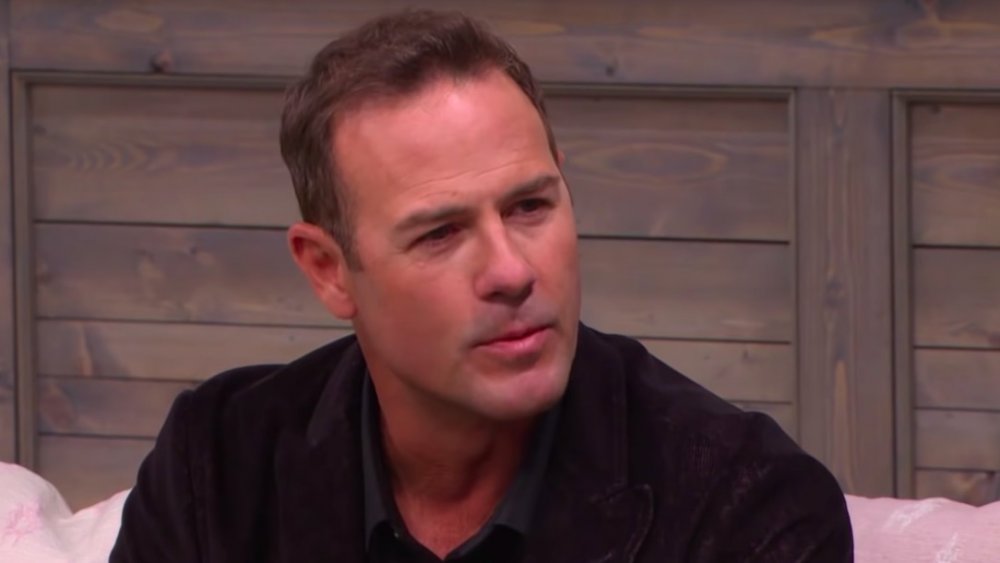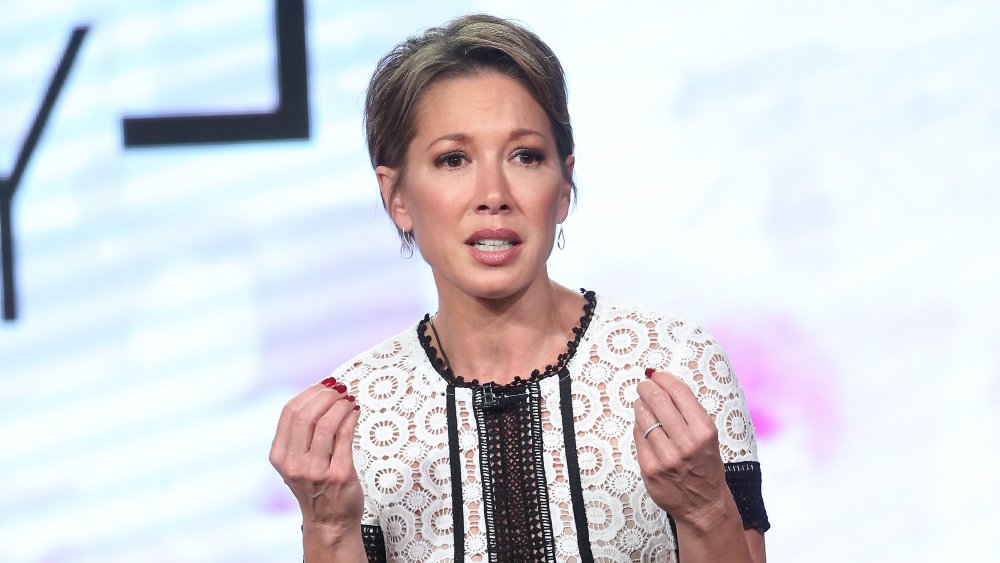The Untold Truth Of TLC's Long Lost Family
At the heart of TLC's Long Lost Family, the docuseries that reunites people with long-lost relatives (typically adoptees and their birth parents) are three words: "regret, loss, and redemption." As TLC proclaimed in its original announcement in 2016, the show "features the highly emotional and touching stories of people who have suffered a lifetime of separation and are yearning to be reunited with their birth parents and biological families or find children they had to place for adoption long ago," noting, "Either because of circumstance or fate, they've barely — if ever — met."
Each episode follows hosts Chris Jacobs and Lisa Joyner as they help people reunite with family members, often guiding participants toward the biological parents who gave them up for adoption. "The stakes are incredibly high," explained TLC, adding that "a successful investigation offers the promise of not just a heartwarming reunion, but also a chance of redemption for people who have wrestled with emotional agony for years."
These true-life stories take viewers on an emotional rollercoaster, offering moments both heartwarming and heartbreaking. Yet there's so much more to know about Long Lost Family than what viewers see on their TV screens.
TLC's Long Lost Family is based on a British series
The average viewer may not realize it, but a staggering number of shows on American television are based on British series, including Trading Spaces, What Not to Wear, and Shameless, and that's also the case with TLC's Long Lost Family.
Long Lost Family made its debut on U.K. TV network ITV in 2011. The show quickly caught on with viewers, who became swept up in the emotional journeys toward closure and reconciliation offered in each episode.
The Guardian TV critic Lucy Mangan explored the appeal of the show in her 2011 review. "Of course, you wept buckets. I had to change my T-shirt twice," she wrote of the catharsis viewers experience as they get drawn into the show. However, she apparently had some mixed feelings about whether these deeply personal moments should be broadcast on television as entertainment for the masses. "Does the bringing together of two families justify the potential intrusion, exploitation, raising and dashing of hopes seen and unseen involved in making a program that primarily serves a voyeuristic, self-indulgent desire to witness other people's misery and joy?" she wrote. "Answers on a postcard, please, because I sure as hell don't know."
TLC got the Long Lost Family ball rolling with a 2015 special
Programming execs at Discovery-owned TLC presumably took notice of Long Lost Family's success across the pond, and announced plans for a one-off special following the same format as the U.K. version in 2015.
"Hoping to find their biological families, two adoptees are guided by hosts Chris Jacobs and Lisa Joyner to embark on an emotional journey in the new one-hour special Long Lost Family," announced TLC in its press release. "For hosts Chris and Lisa, the painstaking search for answers is familiar territory. Both of them were adopted as young children, later searching for — and ultimately reuniting with — their biological families."
Jacobs and Joyner, the release added, "are uniquely poised to provide emotional support and guidance as the adoptees brace for the rigors of this difficult search." The statement continued, "Hitting so close to home for both Chris and Lisa, the two will stop at nothing to try and give [the special's two participants] the news both so desperately want to know."
The special spawned TLC's Long Lost Family
Nearly a year after airing the hour-long Long Lost Family special, TLC announced plans for a full-fledged series, comprised of eight one-hour episodes. Both Chris Jacobs and Lisa Joyner returned as hosts.
"There is no simple path to find the missing loved ones," declared TLC in its announcement. "With tightly held family secrets in their way, the odds are stacked against them. Lisa and Chris conduct painstaking searches through public records, and utilize the latest DNA technology in their search for answers. But what they discover, and who they find, is anything but expected."
Among the people profiled in the first season were a woman who had lived her entire life regretting putting her baby up for adoption 31 years earlier, a woman searching for the birth mother who placed her with social services after an out-of-wedlock pregnancy, and sisters searching for their father, who vanished from their lives when they were just 4 and 5 years old.
Long Lost Family hosts Chris Jacobs and Lisa Joyner are both adopted
Chris Jacobs and Lisa Joyner are the ideal duo to guide people through their Long Lost Family reunions because, as TLC's release explained, they "are both adoptees who have embarked on their own journeys to discover their biological families."
"I was placed for adoption at birth and then placed into foster care," said Joyner in a TLC interview. She noted, "I had this sort of primal wound in me that needed to be filled." She also shared the primary reason behind wanting to meet her birth parents: "I wanted to tell them that I'm okay. Because I couldn't imagine being a parent and having this life out there, and not knowing what happened."
Jacobs also reunited with his birth mother. "It's been a great experience," he said. "I have half-sisters and cousins and nieces now. What's the greatest part, I think, about it is that I've been able to blend my two families, my adoptive family and birth family. We all get together for holidays. My adoptive family knows my birth mom — she comes over to our house at Christmas."
TLC's Long Lost Family host Chris Jacobs opened up about his emotional adoption story
TLC's Long Lost Family co-host Chris Jacobs opened up about his own personal adoption story on TLC's website. "I was 22 months old when I was adopted into a fantastic family who was nothing but supportive of me my entire life," he said. When he began searching for his biological mother in his early 20s, his family "was just so great about it and so supportive."
According to Jacobs, finding his birth mother was actually "very easy." He explained, "I contacted an adoption location service, and, as it turned out, my mom had registered at the exact same service four years earlier when I was 18. They put us right together."
Jacobs and his birth mom reunited in 1993, and they've "been able to develop and grow a fantastic relationship ever since then." He explained, "My story is truly a success story when it comes to adopted kids reuniting with their birth families. ... It was 23 years ago now, and we still talk almost every day." He noted, "It's been great, I wish everybody out there in the same situation the best of luck."
Ancestry has been a partner with TLC's Long Lost Family since the beginning
Since TLC's very first Long Lost Family special and throughout the ensuing seasons of the series, the show has partnered with Ancestry. "Ancestry, the largest provider of family history and personal DNA testing, is teaming up with TLC as a sponsor of the upcoming season," TLC revealed in February 2016, a month before it launched the show. "As part of the show sponsorship, Ancestry provides family history research on each of the featured individuals to help make discoveries possible."
While Ancestry's cutting-edge DNA testing is continually evolving, the company warns that genetic testing is not something that should be taken lightly. "You may discover unexpected facts about yourself or your family when using our services," warns Ancestry's privacy statement. "Once discoveries are made, we can't undo them." The company noted, "At Ancestry, we empower journeys of personal discovery to enrich lives."
TLC's Long Lost Family co-host Lisa Joyner is an adoptee and an adopter
Lisa Joyner was given up for adoption at birth, and reconnecting with her birth parents changed everything. "In my head, I had written my narrative my whole life because I didn't know what my origin story was," she told Amy Poehler's Smart Girls. "But now to actually have that and get that into my control and be a part of how I began, how I came to be, what were the circumstances, it felt really good for me."
That experience led Joyner and her husband, actor Jon Cryer, to adopt a child (via People). "That's what I've found in going back, finding my biological family and deciding who was going to be my family," the Long Lost Family host added. "Who's going to be my family? And I made the personal choice to adopt a child so I'm on the other side of it as well. Not because I couldn't have biological children, because I could. But because I want to further the dialogue and also I wanted to further that positive experience I had with adoption. And I wanted to do something, not just for myself or my husband, but also for another human being."
Curious about adopting? Here's what it's really like when you decide to adopt.
How TLC's Long Lost Family finds its subjects
When seeking participants willing to undertake their own personal journeys on TLC's Long Lost Family, the show's producers cast a wide net. The series' production company, Shed Media, has a casting section on its website with an application form and a number to call. "We are looking for a variety of families to help reconnect: parents hoping to reunite with children they were unable to raise — perhaps placed for adoption or separated by custody disputes or family rifts, adult children looking for their birth parents, or siblings searching for each other after decades apart," noted the site.
In addition, producers also reached out to organizations devoted to helping adoptees reunite with birth parents and family members. One of these, Adoption & Birth Mothers, shared Shed Media's call for participants. "Are you looking for a long lost relative? Do you need assistance with your search?" the message read, noting, "If you are desperate to trace a lost family member and have been searching with no success, the Long Lost Family team would like to hear from you — perhaps we can help (at no cost to you)."
TLC's Long Lost Family hosts reveal how viewers can reconnect with their own relatives
Obviously, one doesn't need to appear in a TLC docuseries to track down a birth parent, and Long Lost Family's Chris Jacobs and Lisa Joyner shared their tips on how people can best do that outside the bounds of the show.
"I think the first thing and the easiest thing is to upload your DNA sample to the Ancestry database," said Jacobs in a TLC interview. "I think there's 30 million people in the database, so you never know what sort of connection you could make there." He also pointed out that "social media obviously is a fantastic tool ... it's a great resource to use." Joyner advised anyone contemplating such a search to "be prepared for your worst-case scenario and your best-case scenario." She shared, "After that, I say give me all your documentation. Get anything that you have, any sort of amended birth certificates, if you've petitioned for non-identifying information ... any sort of physical documentation."
Joyner offered one final piece of advice. "It's not about the nuts and bolts of it," she cautioned, "it's about if it's the right time for you."
The truth about the ratings for TLC's Long Lost Family
TLC's Long Lost Family has enjoyed solid ratings since its debut, and the show has continued to be renewed each season. However, one night in 2017 brought the show its highest viewership ever thanks to a unique TLC programming strategy.
According to a TLC press release, a special Sunday night programming event on April 23 of that year led to the network's "most watched Sunday night in two years," thanks to a lineup comprised of Long Island Medium, Long Lost Family, and the "live television event" This Is Life Live. "TLC's popular Long Lost Family captured its most-watched episode ever," the network bragged, with 2 million viewers tuning in to that particular episode.
While that's an impressive viewership number for a basic cable docuseries, ratings for the U.S. version of Long Lost Family pale in comparison to those of its British counterpart. As The Guardian reported back in 2011, the U.K. show's first season snagged an astounding 4.7 million viewers, capturing 20.7 percent of the total viewing audience.
The success of Long Lost Family spawned a spinoff series
When TLC's Long Lost Family returned with its second season in 2016, it wasn't alone. In its Season 2 announcement, TLC revealed the show would be accompanied by a new companion series, Long Lost Family: What Happened Next. The spinoff, noted TLC, "follows the journeys of what happens with participants after the reunions."
Reuniting with long-lost family members isn't a process that ends after the reunion, and What Happened Next explored the sometimes-fraught dynamics that can result when years of long-suppressed emotion suddenly bubble up to the surface. "Relationships become more complicated, new truths come to light, and never-before-known family members come forward," TLC's release explained. "The spinoff tracks the developments in several of the most talked about stories featured in the first season."
What Happened Next demonstrated that not all the show's reunions ended happily. "A surprisingly troubled outcome with her birth mother prompts an adoptee to find her father and she uncovers life-changing truths," read the synopsis for the spinoff's first episode, which also caught up with a past participant who was struggling to "repair the relationships with the biological father she just met and the father who raised her."
The important life lesson Lisa Joyner learned from TLC's Long Lost Family
While Lisa Joyner and co-host Chris Jacobs help people uncover the truth about their pasts on TLC's Long Lost Family, Joyner admitted that her experience on the show had also taught her an important life lesson. "No matter what the circumstances, even if it's really difficult circumstances, everybody desires their biological link," she explained in an interview with Hidden Remote. "There's a part of us intimately that wants to be genetically bound to some other being. It's bigger than we want their love and acceptance. It's just a common thread."
This thread, she continued, "is so common that sometimes when I tell people we found this person that they've been searching for most of their life, they don't even ask if they want to meet them." She went on, "They're just so pleased it's actually happened and they can let go of this search they've been doing for so long and so desperately ... The moment when I find them and I tell them, you can see their body change, their physicality, and 80 percent of the time they say that they feel like they're lighter."
Meeting his birth mother was life-changing for Chris Jacobs of TLC's Long Lost Family
As an adoptee who met his birth mother when he was 23, Chris Jacobs brings a very personal perspective to his role helping others reunite on TLC's Long Lost Family. "I experienced exactly what they're going through, so I can totally relate," he said in a 2018 interview with Pickler and Ben. "It was a long time ago, but I still remember the exact moment when we saw each other in person for the first time."
Recalling the emotions he experienced at the time, Jacobs added, "I think it was mostly anticipation. Excitement. I think it would have been more emotionally impactful for me later in my life. ... It's been a learning process for both of us. You're essentially meeting someone who is a stranger, who you're biologically connected to. So it's getting over that initial hump of reconnecting and reuniting and then the process of getting to know each other."
Reliving that experience by helping others reconnect in the same way "hits me right in the heart every time," Jacobs admitted, adding, "It's my honor and privilege to be able to shepherd these people through, and I know that my co-host Lisa Joyner feels the same way."
Here's what Lisa Joyner hopes viewers will take away from TLC's Long Lost Family
While Long Lost Family, one of the best shows on TLC, provides an invaluable service to its participants, at the end of the day, it's still a TV series meant to entertain those who watch. Speaking with Amy Poehler's Smart Girls, co-host Lisa Joyner shared what she wants viewers to take away from the series. "Our show is about hope. Our show is about family. Our show is about forgiveness. It's about second chances. And I just hope that people feel more compassionate for people," she explained.
"Let's face it, this world today is not made up of a nuclear family," she added. "There's no mom, dad, two kids and a German Shepherd. You look around the playgrounds and you see what we're living in. We have same-sex marriages. We have stepchildren. We're biracial. There's no sort of quote 'normal' family. What we're seeing are these modern families."
Ultimately, Joyner is hopeful that TLC's Long Lost Family will foster acceptance. "When you take away the mystery, then you take away the shame," she added. "'Cause I don't want [my daughter] to ever have any shame — or any child of adoption, or non-traditional families."
